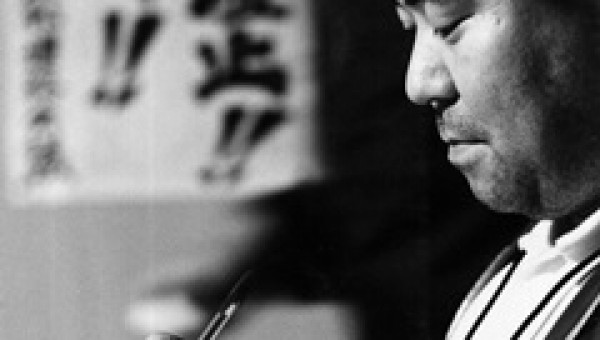Imagination Is Welcome In Reality, Life Is Open To Be Explored
2014/10/07 23:36
If you have seen Wide Awake, this film about the filmmaker's insomnia must have left a very deep mpression on your mind. In this film, after Alan BERLINER has finished his coffee, a drink that he quit a few years ago, he begins to introduce his studio in excitement. We see countless files, reels of film, family photos and sound materials behind him; every item has been labelled and categorised in good order. These materials that BERLINER has collected throughout the years turn out to be the most important source of his inspiration.
BERLINER began his creation in the mid-to-late 1970s. His works are known for the collage he made with images and sounds that were already shot. He uses these materials to construct so many enchanting films such as Everywhere at Once in which we see images captured in various scenes, Myth in the Electric Age, which presents the dialectic between civilisation and the nature and City Edition in which reading is shown in reality as well as in dreams. These films have neither protagonists nor stories; they are composed of images which seem irrelevant and yet abstractly associated with one another; the montage created by the editing is emphasised, and these films seem to be born out of imagination.
For BERLINER, colleting, examining and analysing the files and footage is something he is never tired of doing. He can imagine where the footage came from, why it was shot and who shot it. His unique compilation films are described as "films made without the camera".
In fact, BERLINER who had worked as a sound editor on a sports channel pays close attention to the audio narrative. In 1986, he finished his first feature-length film, The Family Album. From dozens reels of 16mm film shot by his family between 1920 and 1950, BERLINER not only chose and edited the images but added in real voices. The film unfolds chronically, from a baby to an old man/ from birth to death. The image and the sound separate from each other and form the stories of their own, but nevertheless, they do echo with each other; sometimes they are harmonious and lovely; sometimes they seem contradictory and funny, and sometimes they show a sharp contrast with each other. In the end, they piece together a large portrait of lives in the name of a "family".
The Family Album also influenced the direction of BERLINER's creation. Since then he began to care about what was happening around him and to confront his confusion with honesty, using films to explore the universal concerns of human beings, including individual, family, recognition and memory.
Intimate Stranger seems to be telling the story of BERLINER's maternal grandfather, but in fact, it reflects the isolation between family members and the multiple faces of a man. In Nobody's Business, BERLINER films his own father with whom he often argues; it is a fight for digging up the family secrets. Meanwhile in The Sweetest Sound, BERLINER invites those who share the same name with himself to his house as he looks into what names mean to human beings. BERLINER analyses the insomnia from which he himself has suffered for a long time in every aspect, and finds out what is the most thought and cared about in one's consciousness. First Cousin Once Removed records the poet, Edwin HONIG, who had suffered from Alzheimer's; as he is aging and losing his memories, HONIG, talks about how one gradually forgets things with his own experience.
It is fair to say that all of BERLINER's works are entwined with his life. The charm of BERLINER's works comes from his curiosity about life and his courage to face it. He makes films and in turn, these films document his life.
Imagination is welcome in reality, and life is open to be explored. Alan BERLINER's films travel between different times and portray the emotions of those involved; they are the adventures in images as well as in life.


